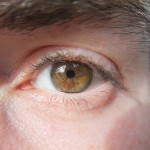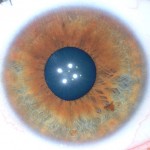Eighteen-year-old Sam had been labelled ‘a malingerer’ by the medical profession. He had been offered a place at university to study Economics and Politics but over the period of a few months he had become increasingly unwell, with severe stomach pain. When I met him, he was on the verge of losing his place at university because he was unlikely to be well enough to commence his studies.
Repeated medical investigations, including a gastroscopy and tests for Helicobacter pylori had been carried out as a stomach ulcer had been suspected, but each test came back negative, and there was no suspicion of gall-stones. Antacids proved to be of no help whatsoever. His pain was an intense burning sensation that frequently was so bad that he needed to lie down.
During later stages he was given pain-killing medication but that too was ineffective. He was eventually written off by the medical profession as a malingerer. His mother thought better of him, knowing how hard he’d worked for his university place. She was a great believer in complementary medicine and made an appointment for a naturopathic consultation, specifically looking for a practitioner who could carry out an iris analysis in the hope of getting to the cause of Sam’s condition.
Sam couldn’t sleep because of the pain and had lost a lot of weight. When he came for the consultation he was so weak that he had to be supported by his parents. He was exceedingly distressed at the medical consensus that it was a psychosomatic problem. He explained that he could swallow but felt that food couldn’t get past the end of his gullet and it was like having a heavy stone near the top of his stomach.

photo credit: ☺ Lee J Haywood via photopin cc
Iridology is the study of the irises of the eye, i.e. the exposed nerve endings that make up the coloured part of the eye. These nerve endings are all connected to the brain via the iris stem. Iridology complements all therapeutic sciences because it provides vital information for establishing root causes of ailments.
Both Hippocrates and Philostratis were skilled in the science of iris analysis. It was taught in the medical school at Salerno and early records were left by the Chaldeans of Babylonia who, in circa 1000 BC, left on stone slabs records of iris markings with the relevant anatomical reflexes – the slabs are on display in the Cairo Museum. A well-trained Iridologist can identify genetic constitutional traits, as well as congestive or inflammatory status within the various bodily systems. Iridology is a very valuable health assessment analytical tool that can prove life saving.
We were challenged by Sam’s extensive medical tests and the iris analysis showed little of consequence in the stomach or the gastro- intestinal zones of the iris, effectively backing up the medical investigations. However, there was a major sign in the pancreatic zone that Iridologists consider to represent a degenerative state.

photo credit: Joe Crawford (artlung) via photopin cc
We asked Sam and his mother for permission to write to Sam’s GP to request investigation into possible pancreatic dysfunction. We were told the GP had been highly insulting about complementary medicine when it had been suggested and his mother felt the GP would be unsupportive. However, Sam was so relieved that someone was finally listening to him, and taking his pain seriously, and on learning that the pancreas sits next to the stomach (his pain zone), he asked me to proceed with writing to his GP.
Our letter expressed serious concern, and even suggested the possibility of pancreatic cancer should be investigated. Cancer isn’t something that can be diagnosed by Iridology but Sam’s iris marking was highly suggestive of a major degenerative condition affecting the pancreas. Thankfully, the GP took the situation seriously and referred Sam for further tests. A blockage of the pancreatic duct was discovered, causing the enzymes in the pancreas to start devouring their mother organ as they couldn’t make their way out of the organ into the small intestine, as should happen, to process ingested food. It was a life-threatening disorder and Sam’s life was promptly saved by surgical intervention. We heard about Sam from time to time, chiefly as a result of Sam’s mother directing other people to us, and he went on to complete his university course, attaining an Honours Degree. So much for being a malingerer!
Angela Bradbury is the Director of the Holistic Health Consultancy and College, London. She can be contacted on 020 7834 3579.

